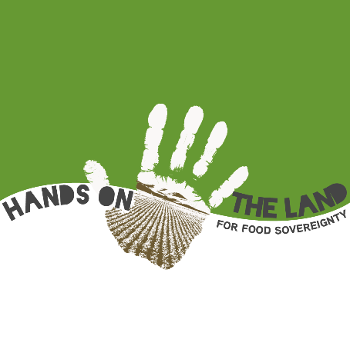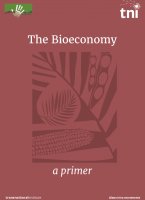The “false promises” of the Bioeconomy-Strategies Berlin-Summit set the wrong priorities
Temas

7th November 2015 – Berlin, Köln and Amsterdam.
As the Global Bioeconomy Summit (GBS 2015) in Berlin from November 24 to 26th concluded yesterday, a European Alliance of smallholder movements and non-governmental organizations from the field of development, environment and human rights calls for a fundamental change to the official bioeconomy strategies emerging from EU countries. Such strategies as they were presented in Berlin carry the risk of counter-productive “false solutions” for the global climate, energy and food crisis, and aggravate environmental and resource conflicts, particularly in the Global South.
While bioeconomy promises to move production and the world economy away from dependency on fossil resources towards the sustainable use of biological raw materials, the dominant vision as considered in the Berlin Summit contributes to “concentrate economic power in the hands of transnational companies and exacerbate the global ecological crisis as well as social and economic inequalities” warns Jan Dunkhorst from FDCL.
Focusing on high-technologies and corporate-controlled innovations as the key solutions to the multiple development challenges – such as poverty, food insecurity, environmental degradation and climate change – clearly ignores the perspectives of the people most affected by these issues. It excludes the vast majority of the people living on the very basis of the proposed transformation, the agricultural land. Roman Herre from FIAN Germany stresses that “this is a déjà-vu. Already in the 2000s policy makers and industry pushed for agrofuels. The huge environmental benefits did not materialize and promised economic opportunities for small farmers turned into a disaster called the global land grab.”
In addition, the discussions during the summit did not call into question a system of severely unequal patterns of access, production and consumption that are at the root of global food and environmental challenges. Instead, debates pointed more toward finding new ‘bio-solutions’ that will simply allow such unsustainable lifestyles and the growth paradigm to continue. The Transnational Institute highlights that this is problematic because it “presents agricultural and natural resources as infinite goods that can be infinitely harvested and regrown, which can lead to resource overexploitation, water pollution and soil depletion”.
A strategic aim of the Berlin Summit was to put bioeconomy as an all-encompassing solution on the table of the upcoming Climate summit COP21 in Paris. In the context of massive bioeconomy support like the EU Horizon 2020 program that alone earmarks 3,8 billion Euros for bioeconomy, the Hands on the Land Alliance calls instead for policymakers to make a clear commitment to support alternative visions such as food sovereignty and agroecological approaches. We emphasize the urgent need for a fundamental transformation of the current global food system that focuses on the empowerment of small-scale food producers.
For media enquiries:
- Roman Herre (FIAN Germany; German, English): +49-(0)176-76145926
- Timothé Feodoroff (TNI; English, French) : +31-630-585-52
Background information:
https://handsontheland.net/new-hands-on-the-land-publication-on-bioeconomy/
https://www.fdcl.org/publication/2015-11-01-biomasse-fuer-die-green-economy/
